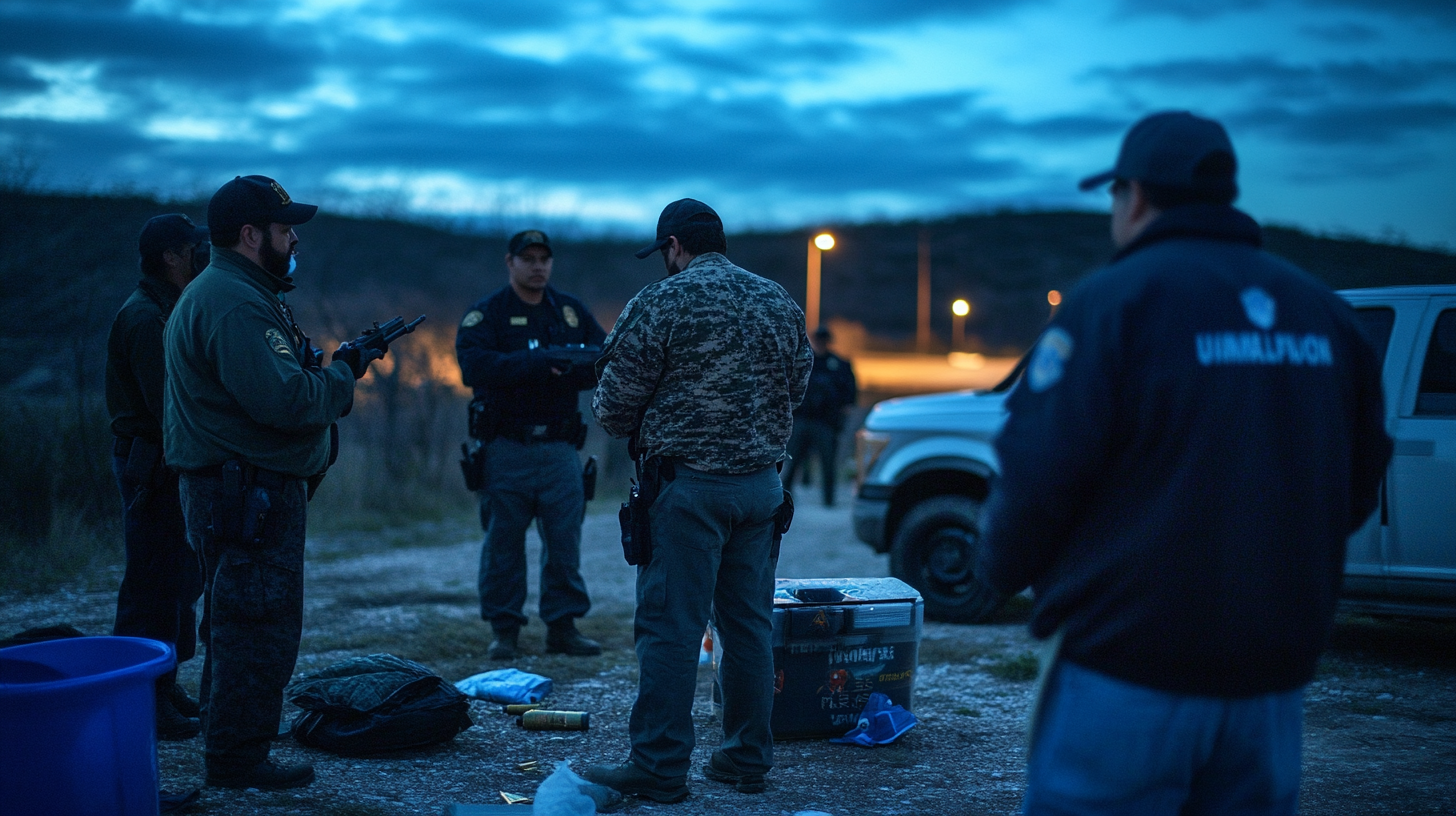**Austin Man Arrested for Attempted Firearms Smuggling to Mexico: A Look at the Broader RGV Impact**
An Arrest That Stirs Broader Border Concerns
In a significant bust that underscores ongoing concerns about border security, Victor Hugo Diego-Avellaneda, a resident of Austin, Texas, was arrested for allegedly attempting to smuggle a large arsenal of firearms from the United States to Mexico. The arrest took place at the Eagle Pass border crossing, where U.S. Customs and Border Protection officers seized 40 rifles, six shotguns, a pistol, 80 magazines, and two rifle scopes, all concealed within two large duffel bags. According to U.S. Attorney Jaime Esparza, Diego-Avellaneda confessed to being paid $100 for each firearm transported, with 11 belonging personally to him.
This incident adds to existing tensions surrounding border control and safety, especially as Texas Governor Greg Abbott encourages state agencies to assist federal entities in their immigration probes and deportations. Abbott’s directive highlights a heightened focus on border safety amidst increasing enforcement activities along the U.S.-Mexico divide.
Strengthening Border Measures
The arrest comes as National Guard troops conduct rigorous training exercises along the South Texas border aimed at bolstering security measures. These activities are emblematic of a nationwide push to tightly seal the border against illegal activities, including firearms smuggling, which remains a persistent challenge.
In conversation with RGV Local News, Representative Juan Hernandez applauded the heightened security measures: “Ensuring the safety of both our state and neighboring countries requires robust preventive actions. Our commitment must include stopping the illegal flow of weapons which fuels violence in Mexico and threatens our own communities.”
Community Concerns: Spiritual and Economic Impacts
Not all reactions have been supportive of increased enforcement measures. Spiritual leaders in the region have raised alarms about the potential implications on communities, fearing the disruptions that immigration raids in sensitive spaces like churches and schools could cause. Father Miguel Alvarado expressed his concerns: “Our institutions are sanctuaries where individuals seek solace. Invading these spaces can tear the social fabric and create a sense of dread among Valley residents.”
There are also economic concerns tied to these escalating border enforcement activities. Nearby Juarez is nearing completion of a new migrant tent complex to aid in managing migrant flows and sidestepping economic penalties, such as tariffs, which could severely impact border trade. Mexican business leaders are particularly wary of economic challenges, with unemployment and the specter of bankruptcies looming large due to being affected by policy shifts staunchly emphasized on enforcement rather than economic harmony.
Local Impact and Historical Context
The Rio Grande Valley, a vital point of transit and trade, faces unique challenges due to these developments. Historically, the Valley has been a vibrant mix of cultures powered by cross-border activities, making it central to conversations on how policy shifts are felt directly by its residents. Increased deportations under the current U.S. administration have demonstrated a clear increase in enforcement efforts, raising questions about community stability and regional economic health.
A local agent, Maria Rivera, elaborated on the potential community impacts: “While we understand the need for safety, the Valley has always been about people and commerce moving freely. It’s essential that enforcement does not stifle this core part of our identity while addressing necessary security concerns.”
Preparing for Future Impacts
The unfolding events surrounding Diego-Avellaneda’s arrest could spell out further tightening of border controls and increased presence of law enforcement in the RGV. Community advocates call for careful implementation of measures that maintain the Valley’s economic vitality while ensuring safety. Balancing heightened security with sustaining economic life will require continued dialogue and cooperative efforts between local, state, and federal entities.
As Valley residents witness these border activities from close quarters, the need for maintaining a delicate balance between safety and societal harmony becomes more pronounced. The event is a testament to the importance of diligence in addressing illegal activities without advancing fear and economic instability.
Resources for Valley Residents
For those seeking more insight or affected by border activity shifts, community forums and workshops addressing rights and resources are scheduled throughout the region. Collaboration with educational agencies will also provide spaces for dialogue and legal counsel. Residents concerned about potential raids and enforcement actions are encouraged to reach out to local non-profits and religious leaders well-versed in these issues within the RGV community.
For further updates, residents can contact the U.S. Attorney’s Office, offering directives on compliance and preventive actions aimed at curbing illegal activities without infringing upon the rights and freedoms of Valley residents.
In conclusion, the incident involving Victor Hugo Diego-Avellaneda’s arrest highlights the complexities of border security and cultural intersections within South Texas. Moving forward, the RGV community must navigate these challenges with its signature resilience and collaborative spirit as critical conversations and policies unfold.







